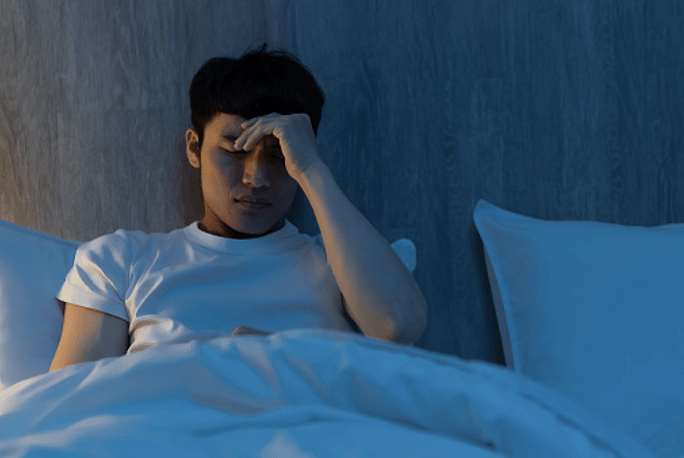Introduction
Sleep is an important factor in overall health and well-being. It’s necessary for physical health, cognitive function, emotional balance, and more. Despite its importance, many people don’t get enough sleep or have poor sleep habits. This can lead to a variety of issues including obesity, heart disease, diabetes, and mental health problems. In this post we are going to explore the basics of healthy sleep: what it is, why it’s important, and how you can get more of it.
Understanding healthy sleep
In the modern world of speed, a good night’s sleep is now a bit of pleasure. It’s been left off our priority list, which is now dominated by work, chores and socializing, and even entertainment.
But, sleeping should not be considered an expense. It’s as essential to your mental and physical health as drinking water and eating food. Sleep experts have recommended that adults should try to get at least 7 hours of sleep a night. However, it is also important to make sure you are getting enough rest throughout the day. You may find it helpful to set an alarm for 90 minutes before your wake-up time, because this will help reset your sleep schedule.
The body’s need to sleep is an area of study that is still relatively new. Researchers are studying exactly what goes on inside the body when it goes to sleep and why this process itself is crucial.
We all know that sleep is crucial to:
- Maintain critical body functions
- Restore energy
- repair of muscle tissue
- enable brain-mind the brain to process information.
- Tips and tricks to sleep
Healthy sleep can come down to fooling the body (and your brain) to have more, better and more restorative time. Here are some suggestions for improving your quality of sleep and duration.
Set a routine for your sleep
Achieving a consistent time to go to bed and staying with it will help your body to have better sleep. Be consistent even on holidays, weekends, or holidays. Keep a regular sleep schedule, even on weekends.
A sleep schedule is more important than you might think! A ‘sleepy’ wake-up time on Saturday can make all the difference as to whether or not you are able to go back to sleep at night.
Get Fido off the stage
You might love sleeping with your loved ones. However, research has shown that pet owners who allow their pets to sleep with them experience more disruptions in their sleep and experience less quality sleep.
Cut out caffeine
Even if you just consume it in the daytime it can prevent you from sleeping at night. To ensure a restful night’s sleep. Avoid caffeine and alcohol close to bedtime, exercise during the day if possible, and avoid bright lights starting at least 30 minutes before bedtime.
Avoid drinking or eating foods that contain caffeine at any time after late afternoon. This includes:
- Tea
- soft drinks
- Chocolate
- You can put your phone down
Make a promise to eliminate any electronic devices for at least an hour prior to going to bed. The intense light may influence your mind and can make sleeping harder.
Sleep disorders
Disorders of sleep can be conditions that hinder you from sleeping properly regularly. Sometimes, sleep disturbances like jet time, stress, and a hectic schedule can disrupt your sleep. If you experience frequent sleep disturbances it could be an indication of an insomnia disorder.
There are many sleep disorders:
- Sleepiness is a condition that is characterized by difficulty getting sleep or staying asleep or both.
- Sleep Apnea is a sleep disorder that happens when your airway becomes blocked several times during sleep.
- Narcolepsy includes daytime ” sleep attacks,” which are characterized by a sudden feeling of sleepiness or falling asleep with no warning.
- Restless legs syndrome (RLS) is a feeling that makes you move your legs continuously even when you’re asleep.
- Parasomnias are abnormal behavior or sleep-related movements including dreams or somnambulation.
- Quality of sleep is just more important than the amount of sleep you get.
People with sleep disorders rest for a sufficient amount of time, but do not get to a level of sleep to feel rested and refreshed the next day. Frequent awakening late at night could also hinder you from achieving the crucial phases of sleep. Take melatonin before bed for better sleep.
Keep calm
When you wake up, you need to completely switch off your brain. You can do this by stopping what you’re doing and turning off any devices that might be distracting you. Drop whatever thoughts are running through your head as soon as possible, or they will lead to a restless mind that is distracted from the surface thoughts of being awake.
Do not nap for too long during the day!
If you find yourself napping more than this, it is time to change your habits! Napping is a sign that you are not getting enough sleep at night, and it will not help your body adjust to the nighttime hours.
Reduce stress levels by taking time out for relaxation
Practice positive self-talk that is affirming, rather than negative self-talk that sabotages your happiness with yourself. “I’m great” is more powerful in the long term than “I’m an failure. Also avoid creaky beds, It will disturb your sleep.
Conclusion
Sleep is an important part of our lives, and it’s crucial that we get enough of it. Unfortunately, a lot of people struggle with getting a good night’s sleep. Insomnia and other sleep disorders are common problems that can have negative consequences on our health if left untreated. We hope that this information will help you improve your quality of life by getting the sleep you need!


